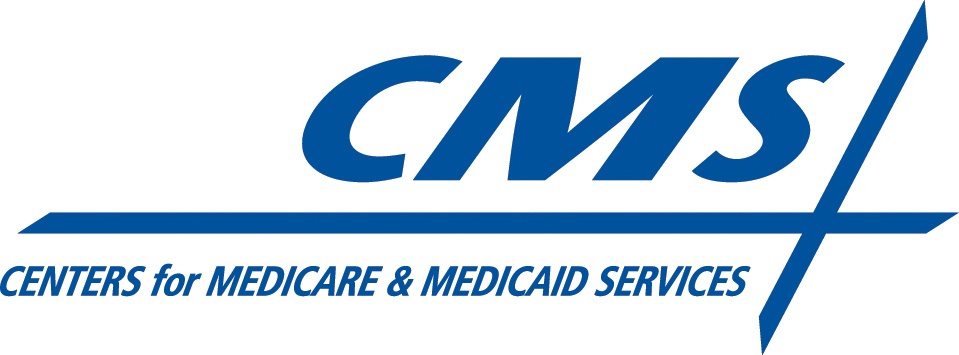|
By Emily P. Walker, Washington Correspondent, MedPage Today Physicians who use a qualified e-prescribing system are eligible for an additional 1% in Medicare Part B payments in 2011 and 2012, and a 0.5% increase in 2013. Providers who fail to complete at least 10 paperless prescriptions using a qualified e-prescribing system between Jan. 1 and June 30, 2011, will receive a 1% cut in Medicare reimbursements in 2012, a 1.5% cut in 2013, and a 2% cut in 2014. In a proposed rule from May, CMS said doctors who are unable to e-prescribe should apply for a “hardship exemption” before Oct. 1. In the final rule issued Sept. 1, CMS announced doctors now have until Nov. 1 to apply for an exemption. |
CMS Seeks to Delay E-Reporting Requirement
The CMS has proposed an array of rule changes affecting physicians and their use of health information technology under various Medicare and Medicaid payment regimes, including delaying for at least a year a requirement for the direct, electronic reporting of physician quality data as part of the meaningful use requirements of the electronic health-record incentive payment program under the American Recovery and Reinvestment Act of 2009.
information technology under various Medicare and Medicaid payment regimes, including delaying for at least a year a requirement for the direct, electronic reporting of physician quality data as part of the meaningful use requirements of the electronic health-record incentive payment program under the American Recovery and Reinvestment Act of 2009.
“One key change in the rule is a proposal to continue to allow physicians and other eligible professionals (collectively referred to as EPs under the program) to qualify as having met a portion of their meaningful-use requirements for clinical quality measures by submitting attestations to the CMS.”
The 621-page proposed rule, released by the CMS this month, but not scheduled for official publication in the Federal Register until Wednesday, is open for public comment through August 30.
Via Modern Healthcare 7-13-2011
CMS Changes E-Prescribing Penalty Program
 Physicians who are using a qualified e-prescribing program on only 25 Medicare claims over the course of the entire year, can claim a 1% bonus (2% in 2010). The only have to add a single code to the claim to qualify ( G8553). 2011 is the last year physicians can switch to e-prescribing without generating a penalty. In 2012, physicians filing at least the minimum 25 Medicare claims will receive a 1% bonus, but those not doing so will incur a 1% penalty! In 2013, the incentive drops to 0.5%, and the penalty increases to 1.5%. In 2014, and beyond, there will be no incentive, but the penalty will rise to 2% and remain there. Physicians can obtain a FREE e-prescribing system by signing up at http://www.nationalerx.com
Physicians who are using a qualified e-prescribing program on only 25 Medicare claims over the course of the entire year, can claim a 1% bonus (2% in 2010). The only have to add a single code to the claim to qualify ( G8553). 2011 is the last year physicians can switch to e-prescribing without generating a penalty. In 2012, physicians filing at least the minimum 25 Medicare claims will receive a 1% bonus, but those not doing so will incur a 1% penalty! In 2013, the incentive drops to 0.5%, and the penalty increases to 1.5%. In 2014, and beyond, there will be no incentive, but the penalty will rise to 2% and remain there. Physicians can obtain a FREE e-prescribing system by signing up at http://www.nationalerx.com
ACO Summit
Event: Washington, DC: 6/27- 6/28: Kathleen Sebelius Keynote Speaker at ACO Summit
Second National Accountable Care Organization (ACO) Summit, June 27-28, 2011, Omni Shoreham Hotel, Washington, DC
Sessions include:
Transforming Medicare with Accountable Care
Core Competencies of Successful ACOs
Models for ACO Implementation
Creating High-Value Health Care:The Big Picture
Read more/register: ACOSummit.com
Haven’t Thought Much About Compliance Lately? The Government Has
It is estimated that health care fraud is a $60 billion a year business fueled by illegal conduct such submitting false claims and paying kickbacks to physicians and suppliers. Until recently, if large health care organizations were the targets of fraud investigations, these companies, as their penance, typically wrote a big check to the government and continued business as usual. Things have changed.
While indicting and convicting health care executives is not a new practice, officials at the Department of Health and Human Services (“DHHS”) and the Department of Justice (“DOJ”) are said to be frustrated with the frequent occurrence of repeat violations and they are ramping up their strategy. Lately there have been aggressive new initiatives rolling out to combat rampant health care fraud and the government is increasingly bringing criminal charges against executives even if they were not complicit in the fraud scheme, but could have stopped it if they had known.
What’s more striking is that in addition to civil monetary penalties and criminal indictments, the government is taking great efforts to exclude convicted executives from being involved in companies that do business with federal health programs. A recent bill introduced to Congress under the name of the “Strengthening Medicare Anti-Fraud Measures Act of 2011 (the “Act”), increases DHHS’ existing powers and allows them to seek to exclude owners, officers and mangers of companies that are convicted of health care fraud from federal healthcare programs even if they left the company prior to any conviction of the entity.
In addition to the expansion of the permissive exclusion afforded by the Act to DHHS, regulators and law enforcement officials are going to be increasingly utilizing current permissive exclusion remedies. DHHS’ bold move appears to be based on the rationale that the permissive authority of Secretary of DHHS or the Office of the Inspector General of DHHS to exclude individuals is a much easier process than criminal proceedings.
The impact of this aggressive new government strategy will likely have even further reaching consequences for convicted healthcare business owners and executives. For instance, an exclusion from being part of a business that works with federal health care programs would be a career ending blow for most executives. It should also be emphasized that smaller organizations are not in any way immune from enforcement activity. In fact, with newly increased enforcement budgets, authorities have the means and the time to target organizations of all sizes.
Law makers and regulators are hopeful that by ramping up the enforcement of existing laws and expanding the scope of DHHS’ power, it will act as a powerful deterrent against overt acts and will compel corporate executives to take proactive steps in preventing fraudulent activities and affirmatively addressing fraudulent practices when discovered. It is vitally important now more than ever, to have an active compliance program in place. A strong compliance program can not only detect and prevent fraudulent or negligent activities but also will typically be considered as a mitigating factor if an organization is culpable of fraudulent activity. The Florida Healthcare Law Firm works with health care organizations of all sizes to assist in the audit, development and implementation of effective compliance programs.
ACOs: The Interview We Want to See
What To Charge When Medicare is a Secondary Payer
The advent of more entrepreneurial opportunities for physicians will cause them to wonder how to deal with Medicare patients when Medicare is the secondary payer. For instance, physicians treating Medicare patients under a Letter of Protection (LOP) need to know how to deal with the Medicare secondary payer issue.
The Department of Health and Human Services, back in 1996, issued a memorandum addressing the issues comprehensively. The memo is available on our website (www.floridahealthcarelawfirm.com), and the only piece of information missing is the requirement that Medicare claims be submitted within twelve (12) months from the date of service.
Ever Wanted to Know How Long Medicare Has to Recoup Medicare Overpayments?
Healthcare providers who participate in Medicare are sometimes surprised when the government later decides that an overpayment was made. As a healthcare provider who accepts federally funded reimbursement, you may wonder how long the government has to make a claim against you for alleged overpayments.
For Medicare overpayments, the federal government and its carriers and intermediaries have 3 calendar years from the date of issuance of payment to recoup overpayment. This statute of limitations begins to run from the date the reimbursement payment was made, not the date the service was actually performed. CMS has instructed carriers not to recover payments that have not been reopened (where no attempts have previously been made to collect) within 4 years from the date of payment, unless the case involves fraud or similar fault. CMS instructs carriers not to recover overpayments discovered later than 3 full calendar years after the year of payment, unless there is evidence that the physician or beneficiary was at fault with respect to the overpayment. Liability of the physician for refunding an overpayment is based on fault- if the overpayment was a result of a lack of disclosure or information from the Medicare beneficiary, the liability may shift to the beneficiary. See Medicare Carrier Manual §7100.
Healthcare providers should be aware that the 3 year statute of limitations does not apply to recovering overpayments made as result of false pretenses or fraud. In bringing a civil action against an alleged perpetrator of fraud for civil penalties, the Federal False Claims Act[i] grants the government and qui tam whistleblowers either (i) 6 years from the date of violation or (ii) 3 years from the date the facts material to the right of action are known or reasonably should have been known by the government , but not to exceed 10 years from the date of violation[ii]. When a “violation” has occurred is arguable. The statute of limitations under the Federal False Claims Act could potentially start to toll on the date the false claim is submitted, but the government has argued that the statute of limitations does not toll until the date of payment on the claim by the government or even final settlement on a cost report with the government. Also important to note is that failure to promptly refund a reimbursement previously discovered by a healthcare provider has been construed as a violation of the Federal False Claims Act. In other words, if you discover an overpayment and wait for CMS to make an official refund request, you may still be subject to penalties and fines.
Furthermore, aside from civil monetary penalties, there are numerous criminal statutes under which the federal government could impose criminal penalties for health care fraud, including obstruction of a federal audit, mail fraud, conspiracy to defraud the government, RICO, the criminal false claims act, False Statements Act, the Social Security Act (wherein it is a felony to render any false statement or representation of material fact), federal anti-kickback statutes, and HIPAA.
[i] The Federal False Claims Act can be found at 31 U.S.C. §§ 3729-3733.
[ii] 31 U.S.C. §3731(b).
_____________________________________________________________________________________________
With over 20 years of healthcare law experience following his experience as legal counsel for the Florida Medical Association, Mr. Cohen is board certified by The Florida Bar as a specialist in healthcare law. With a strong background and expertise in transactional healthcare and corporate matters, particularly as they relate to physicians, Mr. Cohen’s practice immerses him in regulatory, contract, corporate, compliance and employment related matters. As Founder of The Florida Healthcare Law Firm, he has distinguished himself and his firm for providing exceptional legal services with the right pricing, responsiveness and ethics. He can be reached at (888)455-7702 and www.floridahealthcarelawfirm.com




